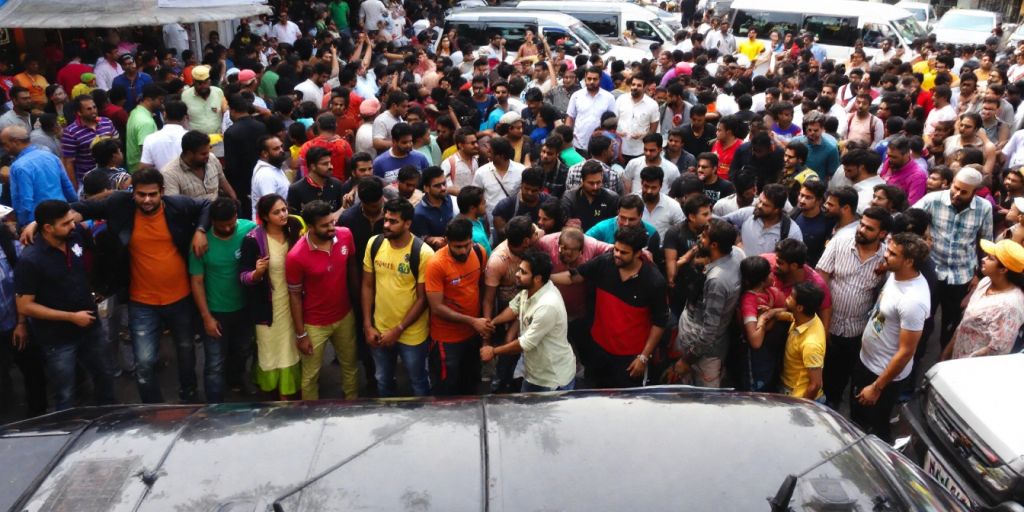Albania’s opposition activists intensified their campaign against Prime Minister Edi Rama’s government on October 29, 2024, by blocking major roads in six towns across the country. This protest, part of a broader movement for civil disobedience, aims to demand the establishment of a technocratic caretaker government ahead of the 2025 elections.
Key Takeaways
- Protests occurred in Tirana, Fier, Elbasan, Durrës, and other cities.
- Opposition leaders called for a technocratic government to ensure fair elections.
- Demonstrators expressed anger over rising prices and government corruption.
- Minor clashes between protesters and police were reported.
The protests were organized by the main opposition party, the Democratic Party (DP), led by former Prime Minister Sali Berisha. Protesters blocked traffic for several hours, allowing only emergency vehicles to pass. In Tirana, opposition lawmakers parked their cars on major highways, effectively halting traffic and causing significant disruptions.
During the protests, demonstrators chanted slogans such as "Civil blockade, today or never!" and burned tires in various locations, including Tirana and Milot. The atmosphere was tense, with reports of minor clashes between protesters and police, particularly in Tirana and the central region of Albania.
The opposition’s demands are rooted in a desire for a caretaker government that can oversee the electoral process, ensuring that the upcoming elections are free from manipulation and corruption. Ivi Kaso, an opposition leader, emphasized the need for civil disobedience to achieve these goals, stating, "Our stated goal is civil disobedience actions in order to achieve a technical government to allow Albanians to vote freely after more than a decade."
The protests come in the wake of rising public discontent over economic issues, particularly the increasing cost of living. Many citizens have expressed frustration over the government’s handling of inflation and the rising prices of essential goods, including fuel. This economic dissatisfaction has fueled the protests, with citizens demanding immediate action from the government to address these issues.
The political climate in Albania has been increasingly polarized, with the opposition accusing the ruling Socialist Party of authoritarianism and corruption. Prime Minister Edi Rama, who has been in power since 2013, faces allegations of manipulating elections and undermining judicial independence. The opposition’s protests are also a response to the recent arrests of key political figures, including Berisha, which they claim are politically motivated.
As the protests unfolded, thousands of police were deployed to maintain order and protect government buildings. Despite the heavy police presence, the opposition leaders vowed to continue their demonstrations until their demands are met. Flamur Noka, the general secretary of the Democratic Party, stated, "Today has been a black day for the narco-regime and its power gangs. Terrified, they have brought the narco-police to every intersection in order to intimidate the opposition."
The international community, including the United States and the European Union, has urged the opposition to engage in dialogue with the government, warning that violence and unrest could hinder Albania’s aspirations for EU integration. As the country approaches the parliamentary elections scheduled for spring 2025, the opposition’s ability to unify and effectively challenge the ruling party remains to be seen.
In conclusion, the protests in Albania reflect a growing frustration among citizens regarding economic hardships and political corruption. The opposition’s call for a caretaker government highlights the deep divisions within the country and the urgent need for political reform as Albania navigates its path toward democratic governance and EU integration.
Sources
- Albanian Opposition Protesters Block Roads in Six Towns | Balkan Insight, Balkan Insight.
- Albania’s opposition blocks roads in a protest to demand a caretaker Cabinet | AP News, AP News.
- Anti-government protest in Albania – Anadolu Ajansı, Anadolu Ajansı.
- Major opposition DP protest blocks for 3 hours main road axes in several cities of Albania – Top Channel, Top Channel.
- Rising prices, the 4th day of protest in Albania – citizens gather in front of the Prime Minister’s office – Telegraph – Telegraph, Telegrafi.






